Russia rejects protecting power mandate agreed by Switzerland and Ukraine
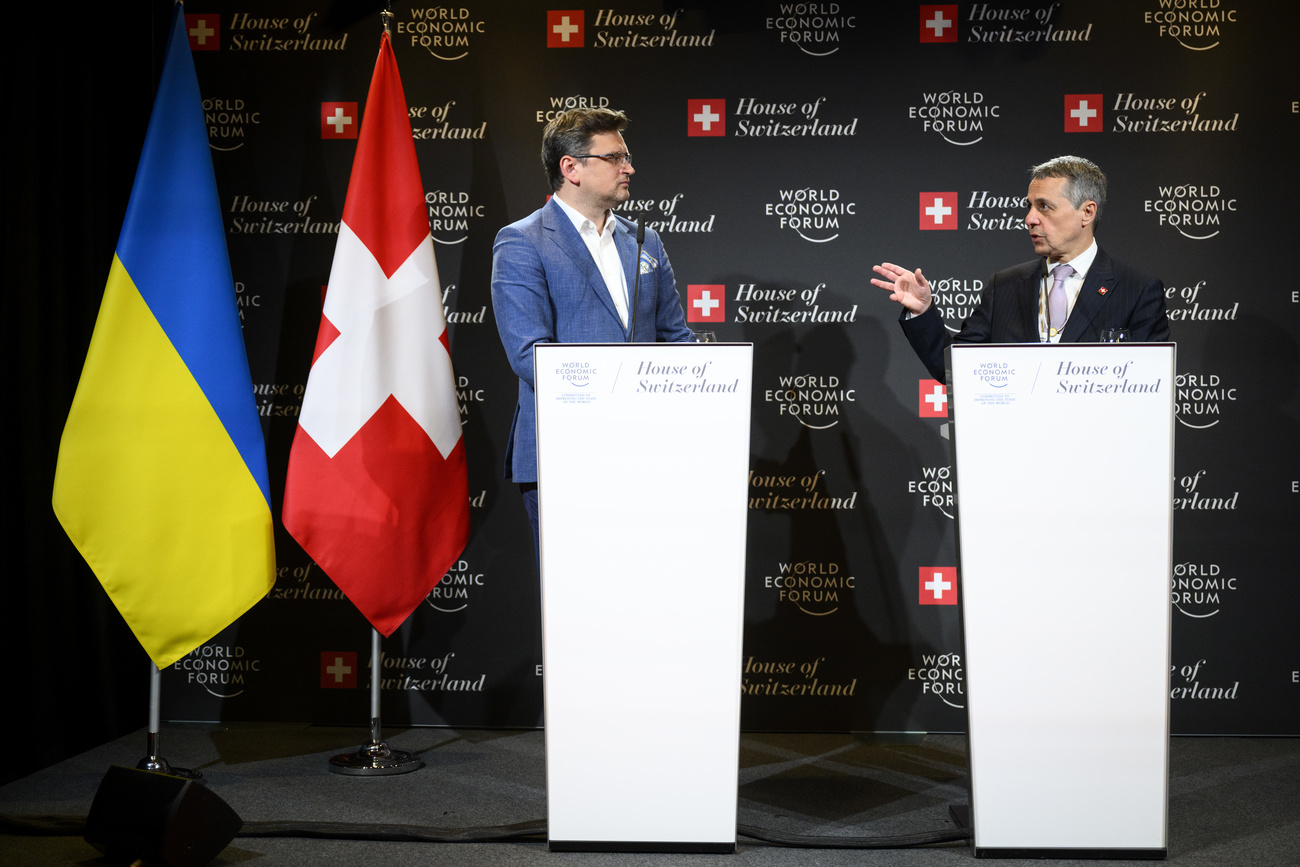
Bern and Kyiv on Wednesday concluded negotiations on a mandate for Switzerland to represent Ukrainian interests in Russia. However, on Thursday Moscow said this was not possible since Switzerland was no longer neutral.
The Swiss foreign ministry confirmed on Wednesday a report by the Luzerner Zeitung which said the outline of a protecting power mandate had been worked out.
While the details of the agreement are secret, the primary objective would be to ensure that Ukrainians living in Russia could benefit from consular services provided by the Swiss Embassy in Moscow, according to Swiss public radio, RTSExternal link.
Such a mandate, which has been mooted since the Russian invasion in February, would fit into the Swiss tradition – as a neutral country – of acting as diplomatic go-between when states partially or fully break off relations.
However, in order for it to enter into force, Russia would first have to agree, the foreign ministry said.
On Thursday Russian foreign ministry spokesperson Ivan Nechayev appeared to bury any chance of this happening.
“The Swiss were indeed interested in our opinion on the possible representation of Ukraine’s interests in Russia and Russia’s in Ukraine,” Nechayev said. “We very clearly answered that Switzerland had unfortunately lost its status of a neutral state and could not act either as an intermediary or a representative. Bern has joined illegal Western sanctions against Russia.”
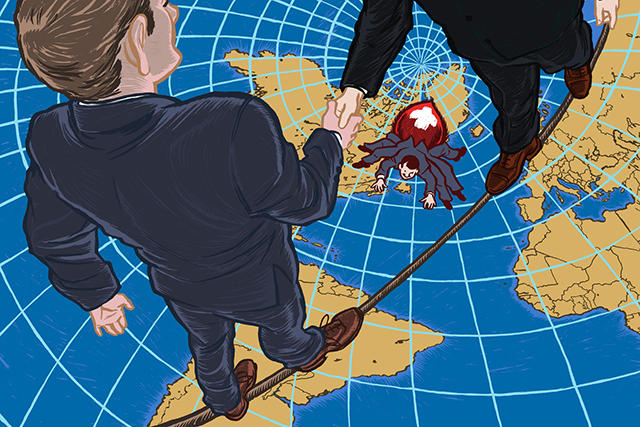
More
Need a diplomatic messenger? Switzerland is eager to help
‘Unfriendly’
After Switzerland decided in February to follow European Union sanctions on Russia, Russia added Switzerland to a list of “unfriendly” nations. It reckons the Alpine nation “damaged its neutrality” in applying the measures, RTS writes.
The Ukrainian side has however for some time been in favour of the Swiss acting as letter-carrier, a role which Swiss Foreign Minister Ignazio Cassis offered shortly after the start of the conflict.
Switzerland currently carries out several similar mandates: sometimes representing one party to a dispute (such as US interests in Iran) or sometimes both (such as between Russia and Georgia). Until 2015 it represented the interests of the US in Cuba and vice versa.
However, it doesn’t always work out: in the case of the dispute between Venezuela and the US, Washington agreed to a Swiss mandate in 2019, but Caracas never approved it.
Further aid
The Swiss foreign ministry also said on WednesdayExternal link that a further 100 tonnes of aid had been transported to Ukraine. The material including firefighting equipment, medical equipment, medicine, and water treatment units left in convoy from Switzerland over the past week, bound for Kyiv and Lviv. Since the war started, Switzerland has transported over 600 tonnes of relief supplies from Switzerland to Ukraine and purchased more than 4,750 tonnes of food aid within Ukraine for donation, the foreign ministry said.
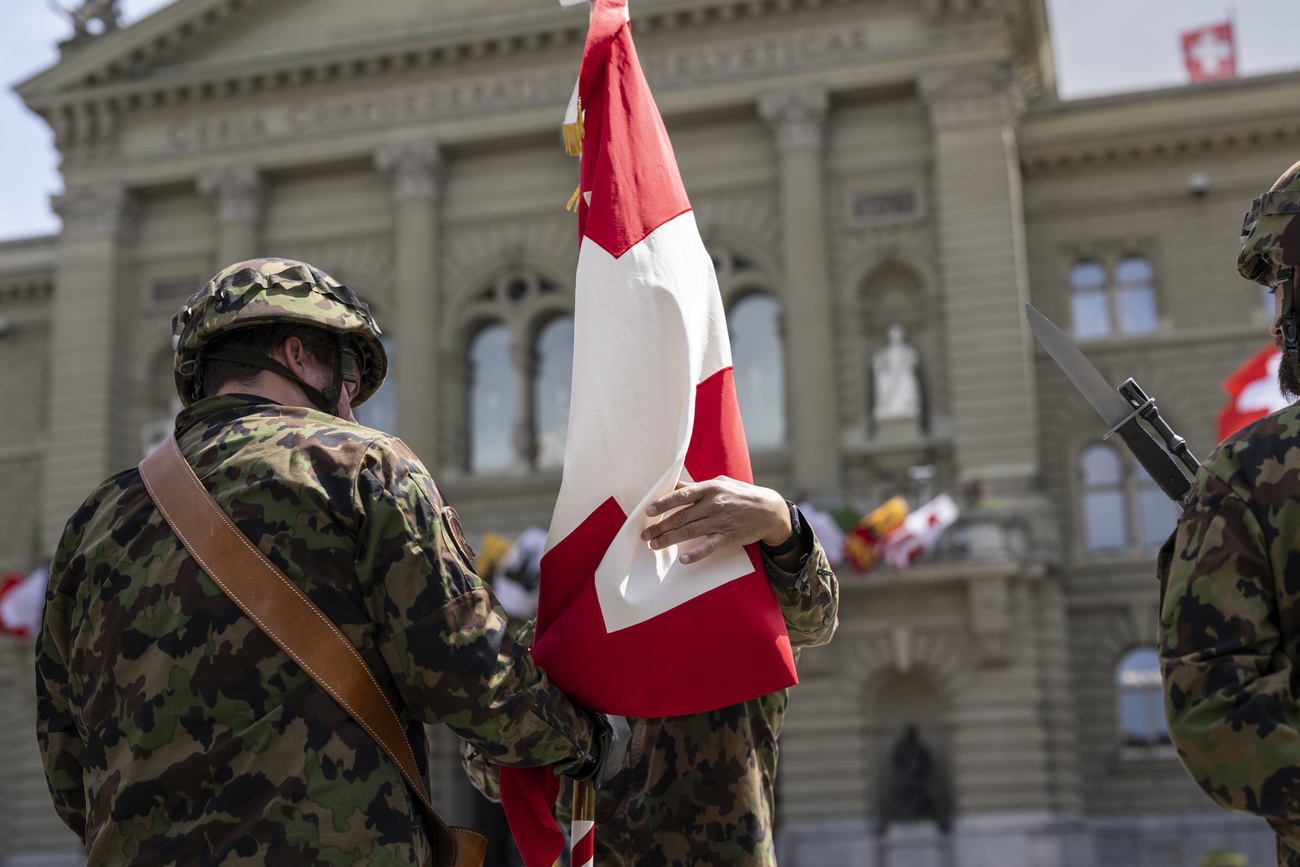
More
Wanted: politically convenient definition of ‘neutrality’

In compliance with the JTI standards
More: SWI swissinfo.ch certified by the Journalism Trust Initiative
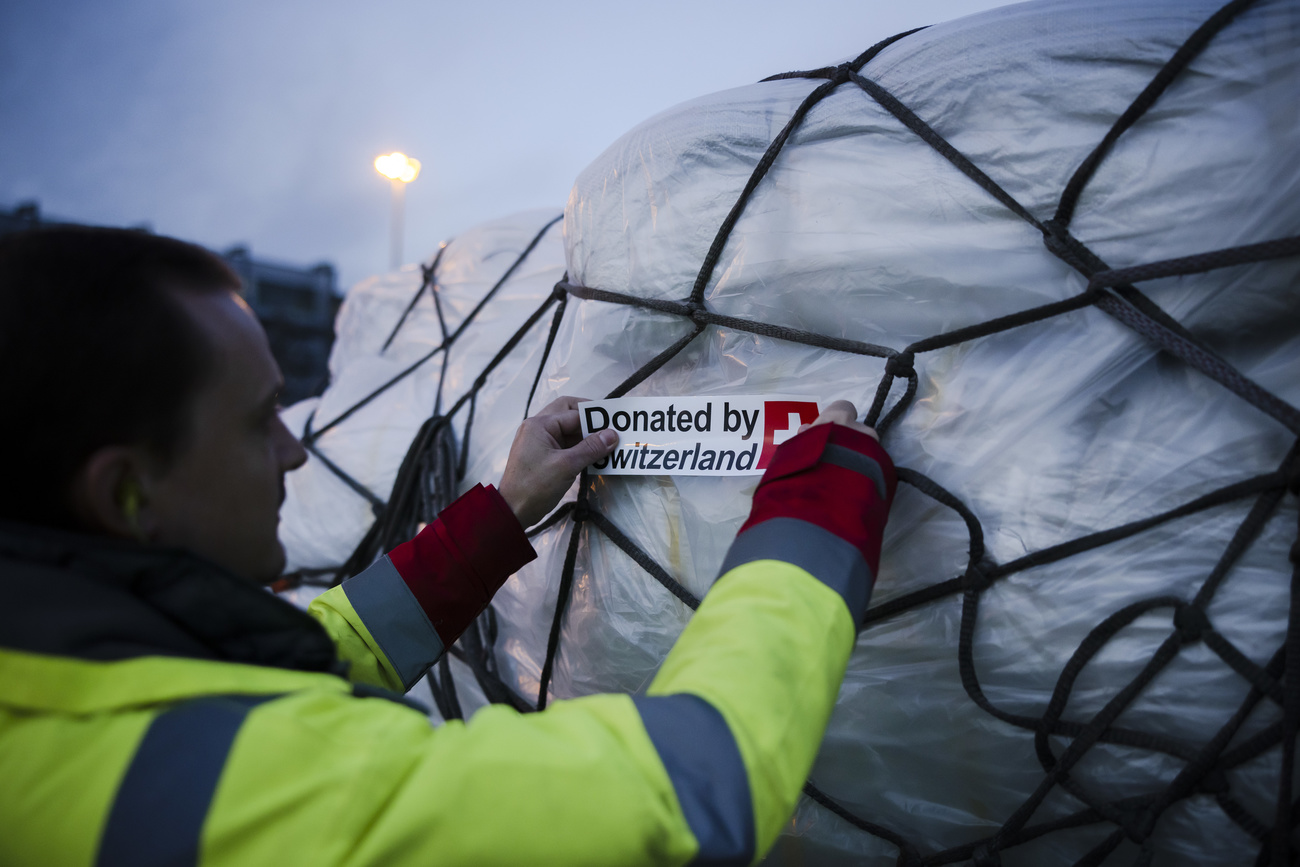
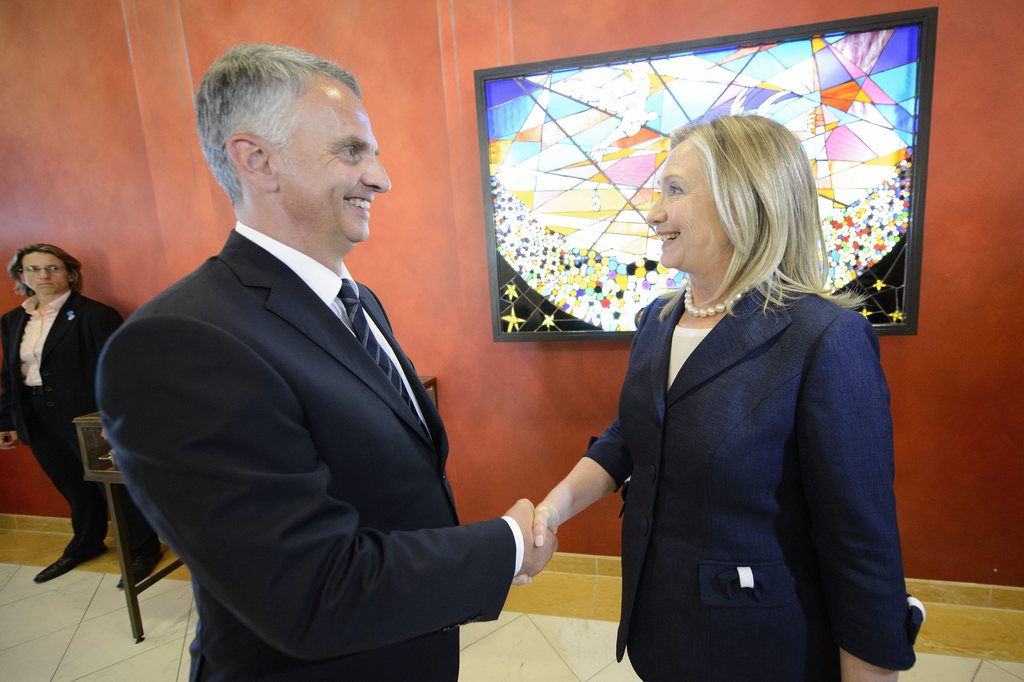

You can find an overview of ongoing debates with our journalists here. Please join us!
If you want to start a conversation about a topic raised in this article or want to report factual errors, email us at english@swissinfo.ch.